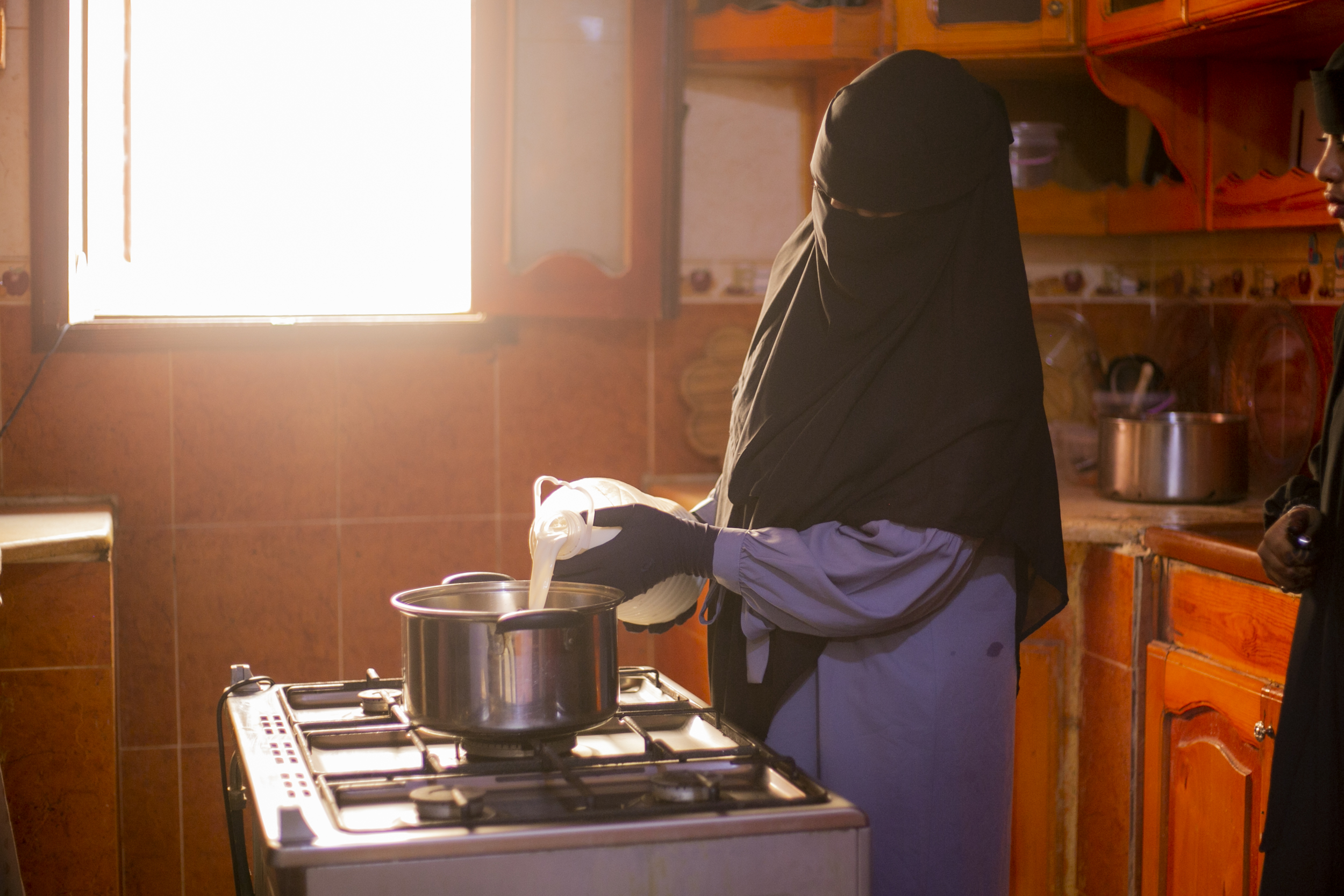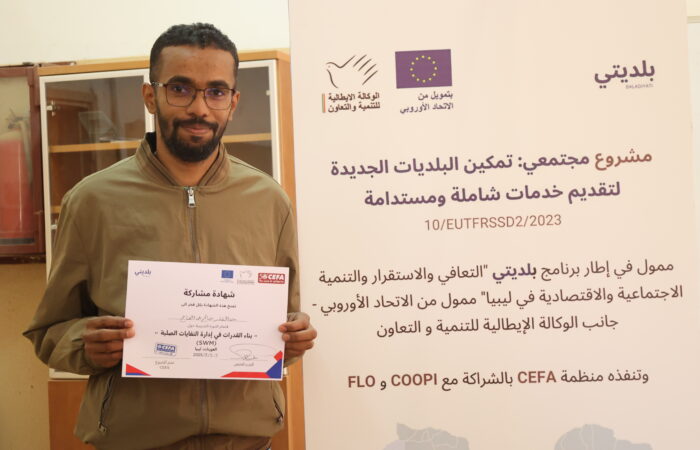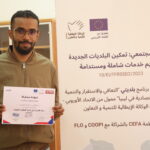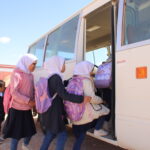Meet Fatima, a shining example of how vocational training programs play a pivotal role in community development. She’s one of the individuals who benefited from the training program in diary product production organized by ICU and Kafaa as part of the ZIRAA Project, supported by AICS through EU Baladiyati.
Fatima is a remarkable 40-year-old woman from Sebha. Her journey through life was marked by challenges, but she always faced them with determination and an unbreakable spirit.
Growing up as the only child of a single mother, she observed her mother’s tenacity: she excelled in farming, sewing, and perfumery, and together they nurtured mangoes, lemons, and oranges. Fatima aspired to be like her.
In her twenties, Fatima pursued a teaching career and got married. Her life took a different turn when her first child faced health issues, causing her to put her career aspirations on hold. Sadly, her son didn’t survive after a challenging six-year battle. This loss was incredibly tough for her to overcome.
However, a glimmer of hope arrived when Fatima received the joyous news of expecting healthy twins. This brought a renewed sense of purpose, and she was determined to succeed for her children.
Fatima began crafting traditional sweets from home, and her reputation for creativity and craftsmanship grew. Her confections were in high demand, making her a significant contributor to her family’s finances.
As her family expanded with two more children, life seemed smooth until the day she fell ill and was diagnosed with kidney failure. Her health had to take precedence, and she had to temporarily stop working. Overcoming the resulting depression was a long and challenging journey, but her children’s love provided the strength she needed: “I had very difficult years – says Fatima – only my children kept me going”.
Recently, she reconnected with the world when a friend told her about a local dairy training program. Encouraged by her husband and friend, she decided to enroll.
During the training, organized by ICU and Kafaa under the ZIRAA project and supported by the Italian Agency of Development Cooperation through EU BALADIYATI, Fatima did not miss a single day of lessons and acquired expertise in crafting various dairy products.
She reached out to her previous work partners, who welcomed her back with open arms, and she resumed her work at a pace that prioritized her well-being.
Fatima is set to receive new equipment to improve her efficiency, and she’s excited about working again, primarily as an example for her children.
As the only child of a hardworking mother, she understands the value of having her mother as a role model and is determined to pass these values on to her own kids, just as her mother did for her.
The Baladiyati (My Municipality) Programme – Recovery, Stability, and Socio-economic Development in Libya- is funded by the European Union through the Emergency Trust Fund for Africa (EUFT) and jointly implemented by AICS, UNDP, and UNICEF. The main objective of Baladiyati is to create a more inclusive social and economic environment and enhance stability in the region, providing direct assistance to Libyan municipalities and improving the living conditions of the most vulnerable communities in the country. Since its establishment in 2018, Baladiyati has actively collaborated with nearly 40 municipalities, leveraging expertise, capacities and implementing activities to support local communities. Baladiyati’s specific goals are to improve people’s access to better public services, such as education, healthcare, water, sanitation, and hygiene (WASH), sustainable energy solutions, and livelihood opportunities. Furthermore, the programme strives to strengthen social cohesion and to promote local peacebuilding and resilience.






